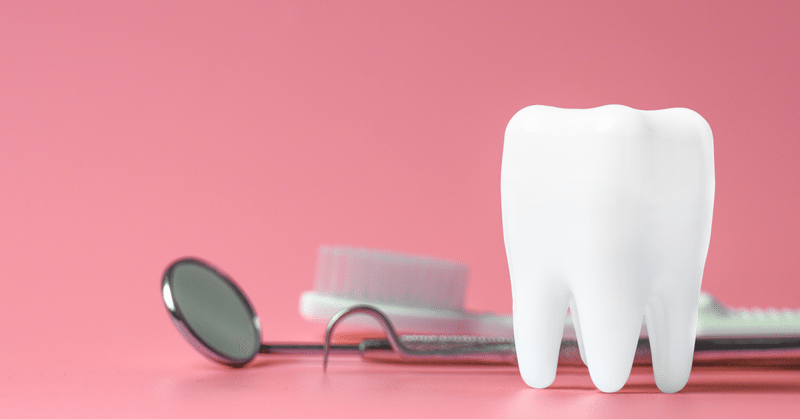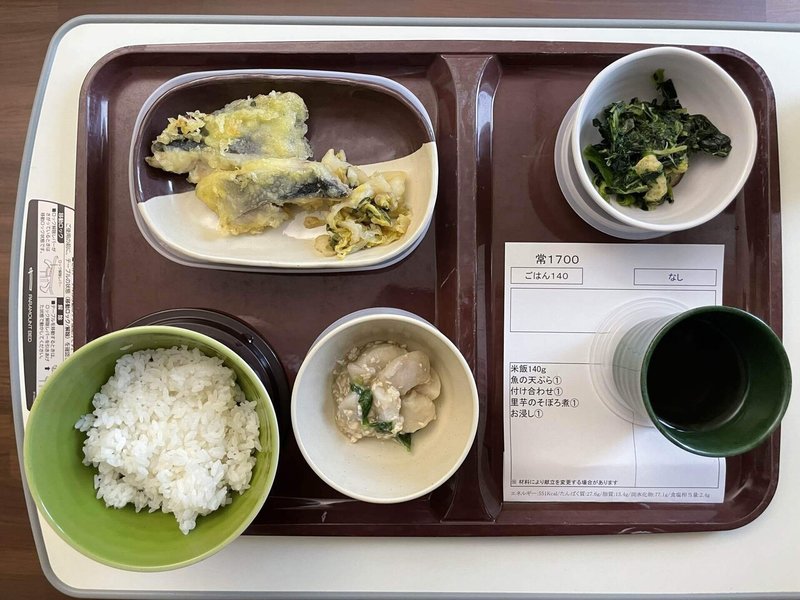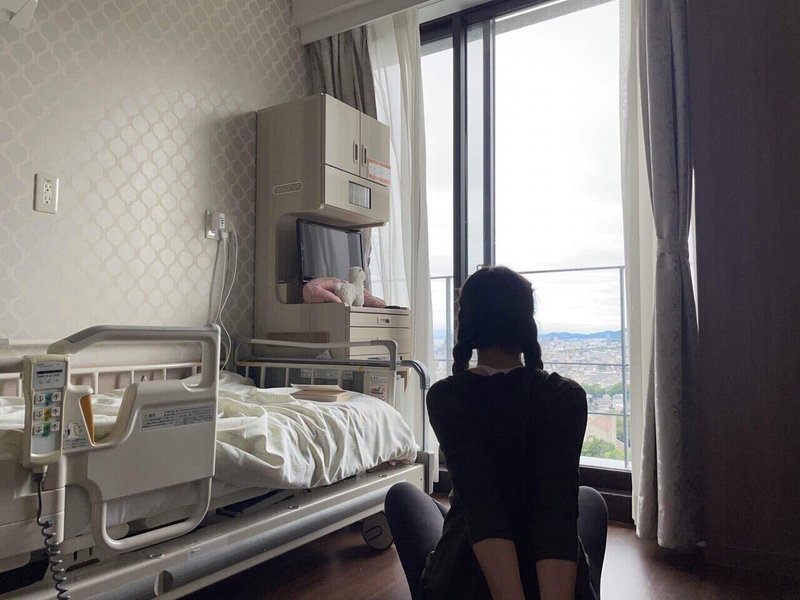
I got my wisdom teeth extracted in Japan and... it was just the break I needed
I never imagined that my wisdom teeth extraction would actually become a time of much needed R&R. Yes, my surgery came with the inevitable pain and discomfort (even with anesthesia), but the 3 day 2 night stay in a spacious room with a view was just the getaway I needed to read, sleep, be creative, and self-reflect.
Though everyone's medical situations vary, I hope my extraction experience as an American in Japan might help you!
Background
Right around my 28th birthday, I began feeling an uncomfortable gap in the bottom right side of my mouth. I didn't have any pain but had it checked out to be safe. After a quick checkup and X-ray at my neighborhood dentist, I found that the gap was caused by my wisdom tooth pushing out. The dentist recommended I have the tooth removed to prevent bacteria buildup (yuck!) and I expected to make an easy appointment to have it quickly pulled out.
A few months prior to this, my husband was able to have one of his wisdom teeth removed in a matter of 15 minutes at the same neighborhood dentist. Not thinking my experience would be any different than his, I froze when the dentist said he'd be referring me to a general hospital.
Nervously, I visited the general hospital and their oral surgeon took a closer look. She suggested I either A) remove just the tooth causing the gap, or B) remove all three (I was born with only three! The other two were trapped beneath my gums which would likely cause pain down the road). I opted with removing all three, but I'm the type to avoid pain, blood, and needles at all costs. I asked if I could get general anesthesia (fully unconscious), versus local anesthesia (oral area numbed, but conscious), and so I was referred to their anesthesiologist.
After the appointment with the anesthesiologists to ensure I was fit for general anesthesia, I was all set for my 3 day and 2 night* hospitalization. It seemed like a ridiculously long time but I ended up appreciating every moment in the hospital, where I caught up on reading, sleep, and where even wrote most of this blog.
*It's usually 2 days and 1 night, but it currently takes an additional night and day with the added layer of cov!d tests.
Why I chose Japan and not the States for my extraction surgery
While I would have been more comfortable having my teeth extracted in the States (language and communication wise), I ended up choosing to have it done in Japan. The obvious reason is insurance & cost. Currently I'm not in any insurance in the States, but I'm covered under the National Health Insurance in Japan. The National Health Insurance here typically covers 70% of medical/dental costs and leaves 30% for the individual to pay.
Timeline (leading up to surgery)
Mid March
Moderate discomfort in bottom right of mouth, visit neighborhood dentist
Late March
Visit referred hospital to meet oral surgeon
--> Made surgery appointment for mid-June (backed up due to COVID)
Late May
Check-up with anesthesiologist to check eligibility for anesthesia
--> Medical History Check
--> Physical Exams (blood tests, etc. )
--> Walk through of the anesthesia process
Mid June
3 day and 2 night hospitalization for extraction surgery
Late June
Follow-up appointment to remove stitches
Early July
Another follow-up appointment to check everything was good and healthy
Hospitalization
Day 1
12:00 Pre check-in for COVID-19 testing
12:15 PCR test (90 wait for the results)
13:55 Result distributed (negative, yay!)
14:00 Official check-in
14:30 Escorted to hospitalization room (upgraded to the single room since the shared rooms were all booked !)
15:00 Consultation with a nurse: thorough explanation of the three day stay, took temp, blood pressure, oxygen check, double checking for allergies, etc.
16:30 Meeting with the oral surgeons
17:15 Meeting with anesthesiologist
17:45 Dinner (last solid meal!)
18:30 Shower
22:00 Lights out




Day 2
07:30 Wake up (temp, blood pressure)
--> Did some reading, yoga, knitting
10:00 Reminder to have no more liquids and "downgraded" to the shared room (4 per room) which I originally had paid for.
11:00 Change into surgery gown, get hooked up to IV
13:30 Surgery (absolutely no memory, other than falling asleep to Clean Bandit's "Symphony" playing on the radio in the surgery room…)
17:00 Woke up from the anesthesia with slight pain and had more IV added
18:00 Dinner
20:00 Fell asleep



Day 3
06:00 Wake up (temp, body pressure)
08:00 Breakfast
09:00 X-ray and follow up with surgeon
10:30 Released from hospitalization, made appointment for removing stitches
11:00 Final payment and free to go home!

Post Surgery Stitch Removal
Six days after the surgery, I finally had my stitches removed. Having the stitches in my mouth might have been one of the most uncomfortable things. It was like eternally having strings stuck in my teeth like after eating corn on the cob.
Healing Period
I was pleasantly surprised with the lack of pain when was released from the hospital, even after the anesthesia wore off. Or so I thought. A few days later the pain and discomfort were so bad that it was hard to soeep some nights. I luckily had plenty of pain killers and numbing cream, which helped soothe the pain and to help me doze off.
Discomforts during the healing period:
Yawning (hurt to open my mouth wide for about 5 days)
Brushing my teeth without it being painful!
Face washing/ applying cream to the cheek area (minor pain)
Facing sideways during sleep (pressure on cheeks)
Eating
having to chose soft and mushy foods,
having to inconvenience friends and family because of it
having to refuse delicious looking food if they were too sticky or firm
Hospitalization Tips
Always be early. Not on time, and definitely not after the appointed times. In the end, you save more time this way (at least in my experiences)
Take a good book. Or your PC, or sketchbook, or camera, knitting gear or. . . all of it, if you're like me! (Although I learned it's difficult to knit when you have IVs hooked on to your arms.)

Leave the jewelry at home. Don't want to misplace or lose them!
Bring your own utensils! It may vary by hospital, but my hospital didn't provide utensils with meals. I made the mistake not to bring mine and ended up purchasing single-use chopsticks and spoons at the hospital store.
Bring your own cup, tea bags, drinks, etc! You can save on having to purchase drinks from the vending machine & warm beverages are better for the stomach anyway.


Have all documents filled out and prepared in advance. Hospital staff expect all documents to be complete at the time of check-in. You don't want to scramble last minute with filling out documents and having to look up your numbers and addresses in Japanese, or having to translate documents on the spot.
Prepare prescription medicine & supplements and don't forget medicine book (お薬手帳 okusuri techo). If you're on any prescribed medication, have them neatly ready to present to your nurse, along with your medicine book that shows the details about them.
Check to see if you can be accompanied by family, friends, and interpreters in advance. With COVID-19, there are limitations on who can accompany patients and some hospitals require you to report in advance if you need to be with somebody.
Additional Tips for Vegetarians, Pescatarians & Vegans
I am a vegan (98% of the time) and it's not always easy in Japan. To this day, many hospitals don’t offer vegetarian or vegan menus. Patients are served a standard meal unless they have medical issues or allergic reactions to dairy, meat and fish. Since I am vegan by choice and not for medical reasons, I don’t qualify for special menus at most hospitals.
The tip here is to either be flexible, or to bring your own food/drinks. This time, I brought four packs of vegan juice in case I didn't like the food. They came in handy for when I was served dishes that I absolutely did not want to consume and wanted to replace.

Costs
The total cost for the 3 day hospitalization was JPY 75,000 (~ USD $535*), but around JPY 95,000 (~ USD $680*) for everything including the initial appointments and follow-ups and transportation to/from home and the hospital which I usually took a cab for (roughly $12 each trip, or $24 round trip).
* USD $1.00 to JPY 140
Useful Words


Final Thoughts
As I write this blog three months after my hospitalization, I'm thankful the procedure is done. I can speak normally and eat my favorite foods again. But in all seriousness, I'm thankful for the medical system in Japan where The National Health Insurance here typically covers 70% of medical/dental costs and leaves 30% for the individual to pay. If it weren't for that, this "basic" procedure may have ended up costing a fortune, especially considering my 3 day long hospitalization. I'm also very thankful for Japan's high standard of service and effort to make patients feel as comfortable as possible and for the much needed R&R I experienced during my stay.
Now every time I hear "Symphony", you know I'll be thinking of myself dozing off into unconsciousness…
